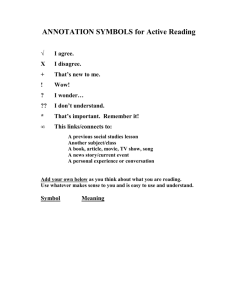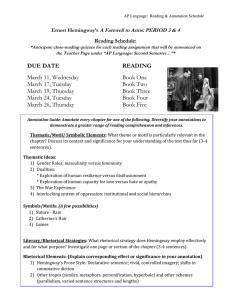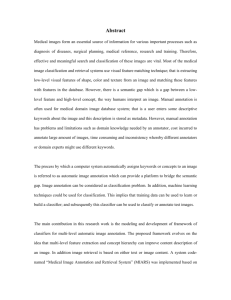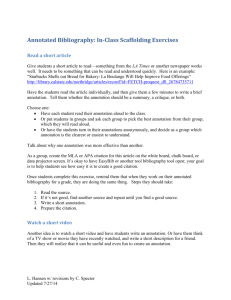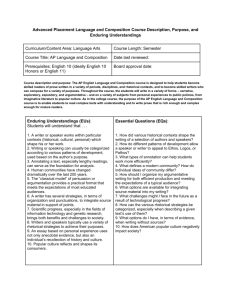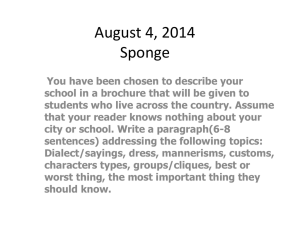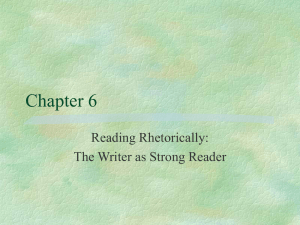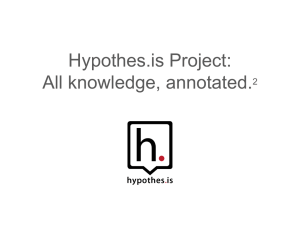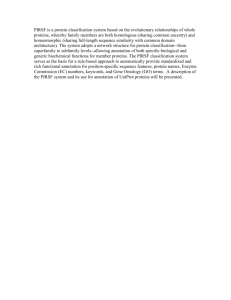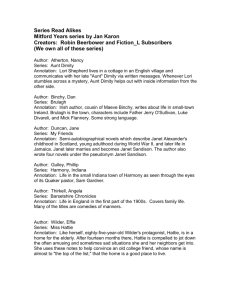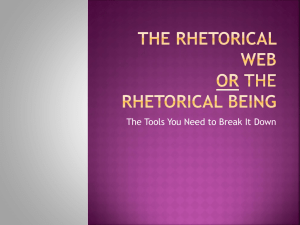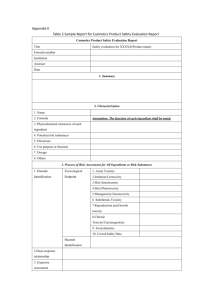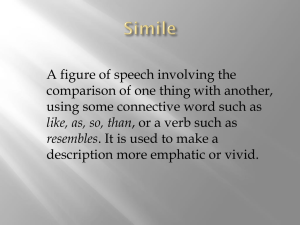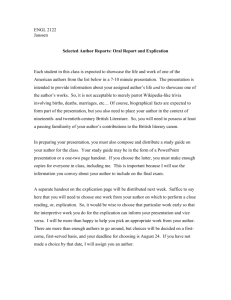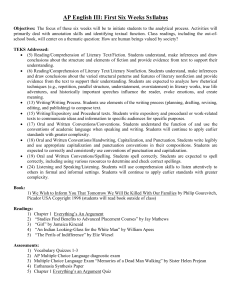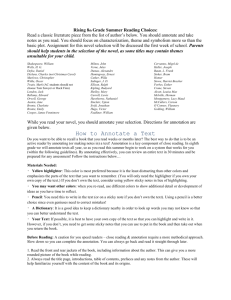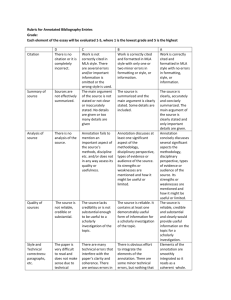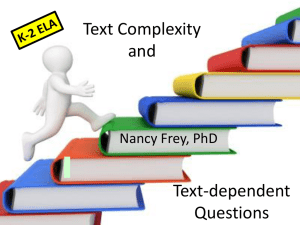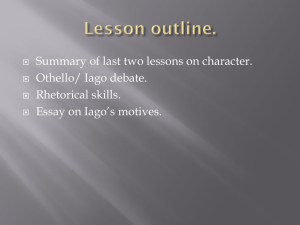Analyzing Literature and Annoting Text
advertisement
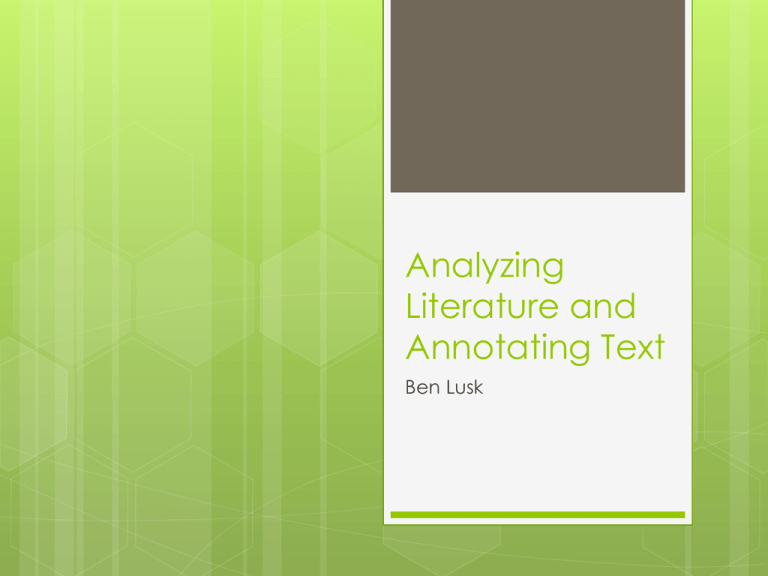
Analyzing Literature and Annotating Text Ben Lusk Session Goals Engage in works of literature Struggle with rhetorical situations Annotate texts Develop rhetorical questions Share/model with students Understand the need for interesting and thought provoking materials Purposes for Academic Reading To master a course’s key concepts and ideas To understand and apply the discipline’s characteristic ways of thinking What questions does this discipline ask? What questions have been answered? What questions still need to be answered? How does it acquire new information? What is acceptable evidence? How do you write arguments in this discipline? Questions Rhetorical Readers Ask Resource 1 Meaningful Questions Meaningful Journaling/Reading Logs Anticipation Guides The Parlor Metaphor Resource 2 What is conversation? What is its purpose? What is a metaphor? How does it function? Symbolic Drama and Action When entering a “conversation”, what questions must a person ask to gain historical and future perspective? How do new “frames” of perspective affect the conversation before, now, and in the future? Poetical Explication and Annotation Resource 3 Annotation is the key to success with poetry Students suffer from immediate interpretitus Building a firm foundation Framing the structure Decorating the interior Prose Explication and Annotation Resource 4 Annotation is the key to success with prose Students do not mark their thoughts Building a firm foundation Framing the structure Decorating the interior
